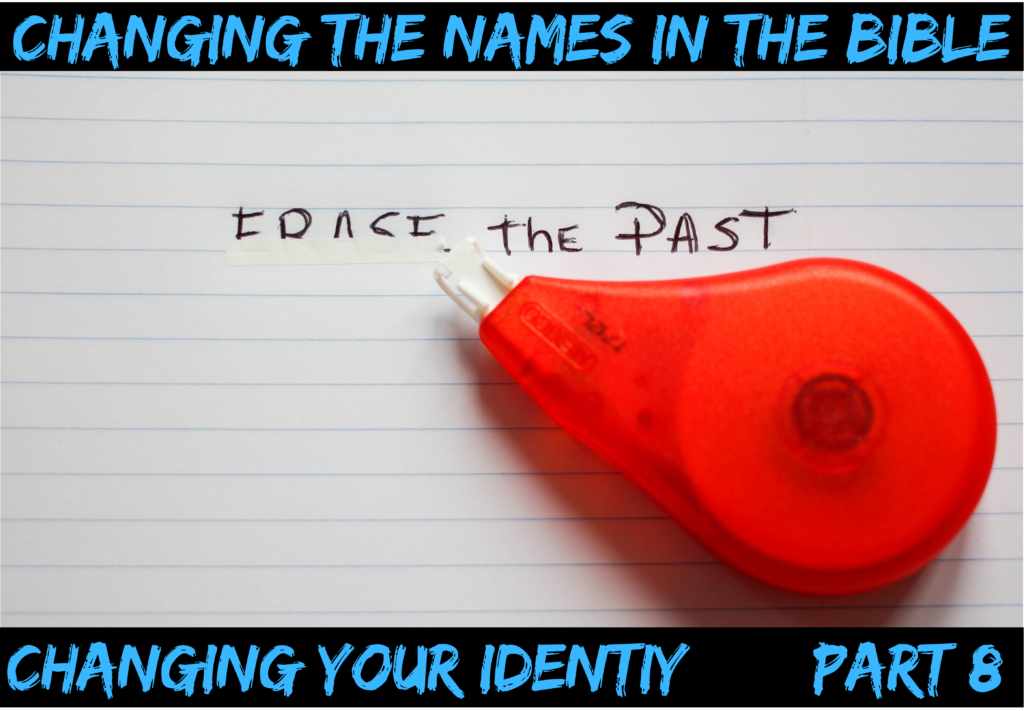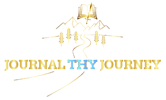
Before you start this Food for Thought “Changing the Names in the Bible,” please take the opportunity to read through the previous parts, I highly recommend that you do. This will help you better understand the context and progression of the topics discussed.
Three-Part Strategy Outlined in the Scripture Below
- Reeducate them in the ways of the Chaldeans as well as writing and speech (Daniel 1:4)
- Change their diets to foods that would defile them (Daniel 1:5)
- Change their names (Daniel 1:6-7)
4. …teach them the writing and the language of the Chaldeans.
5. And the king set to them the portion of a day in its day, from the king’s food, and the wine of his drinking, even to rear them three years, so that at their end they may stand before the king.
6. And there were among them of the sons of Judah, Daniel, Hananiah, Mishael, and Azariah,
7. to whom the chief of the eunuchs gave names. For he called Daniel, Belteshazzar; and Hananiah, Shadrach; and Mishael, Meshach; and Azariah, Abednego.
Daniel 1:4-7 (HRB)
In this and all Food for Thoughts I recommend you read the Scripture(s) provided and the entire chapter they are from to obtain more insight.
High Jacking of the Faith and Bible
We have reached the end of this 8 part series with the final blow delivered by the Three-Part Strategy enacted throughout history by the Roman Catholic Church (RCC) and Protestant sects or denominations. As mentioned in the series, this strategy has been instrumental in shaping the course of history and influencing the religious beliefs and practices of millions worldwide. The final blow was changing the names of many, if not all, the people in the Bible, thus removing and downplaying the significance of the people’s personal, social, and spiritual identity, heritage, and uniqueness.
The practice of changing names, among other things discussed in this series, has significantly contributed to why many people from the second century until today have no interest in understanding the historical context, heritage, or cultural nuances of the actual people depicted in the Bible. The clergy and the powers that be in the second century and still today want nothing to do with:
- The Old Testament except for Tithes $$$
- The Yahudim (Jews), not the Jewish or Jewish converts of today
- The Pharisees like Sha’ul (Saul or Paul), whose words they twist (Acts 23:6, 2 Peter 3:15-16)
- The Sadducees
- The Followers of The Way (Acts 24:14)
- The Nazarenes, whom Sha’ul was accused of leading (Acts 24:5).
It is important to note that Followers of The Way and Nazarenes were people who followed the commands of 𐤉𐤄𐤅𐤄 and believed in Yahusha, which would have included all the disciples of Yahusha the Nazarite (Revelation 12:17, 14:12). Unfortunately, the lack of interest in the people and the Old Testament has caused confusion and led many astray.
12:17. And the dragon was enraged over the woman, and went away to make war with the rest of her seed, those keeping the commandments of YAHWEH, and having the testimony of Yahshua Messiah.
14:12. Here is the patience of the saints; here are the ones keeping the commandments of YAHWEH, and the faith of Yahshua.
Revelation 12:17, 14:12 (HRB)
In this and all Food for Thoughts I recommend you read the Scripture(s) provided and the entire chapter they are from to obtain more insight.
A Chosen People
Yahshar’elites were and still are the chosen people who 𐤉𐤄𐤅𐤄 used to teach people His ways, precepts, and commands (Deuteronomy 4:5-8). Not only that, but through these people’s interaction with 𐤉𐤄𐤅𐤄 from the Old and New Testaments, particularly the Old, we learned the characteristics and ways of 𐤉𐤄𐤅𐤄. However, you lose the person’s identity when you change the things this series has pointed out, especially the names.
Consider how a simple name change can convey so much about a person’s identity, culture, and background. Think about how your perspective, perception, and bias would change if I altered the names in a story. Imagine if I were to tell you a story about John and Peter, two individuals with Western names. You might immediately form a mental image of them as white, English-speaking, and possibly Christian. But what if I were to tell you a story about Muhammad and Ahmed, or Li Chang and Chen Xiang, or Yochanan, Kefa, and Yehudah? Suddenly, your mental image of the characters changes, and you might picture them as individuals from different parts of the world with different religious beliefs and distinct cultural practices. What about La’Kisha and Bonquisha, two African American girls, right? What else does your mind tell you about them? The names of the people in a story can play a crucial role in shaping our understanding of who they are and how we perceive them.
Names Were Removed and Replaced
The names of the people keep you in constant connection with their culture. Through the Three-Part Strategy coupled with Hellenization and the Renaissance period the Hebrew names were removed and replaced with not-so-great Greek and Latin transliteration and translation. This was possibly done so that Europeans, whether pagan or not, would feel more comfortable accepting the faith as their own. History tells us it was successful as the Europeans started naming their children after the transliterated names of heroes in the Bible. This fit into their own culture, which is known as inculturation (1 Maccabees 3:48). The RCC and the Protestant Reformation pushed this further by continuing the spread of this religious propaganda. This is also continued today around the world by the same groups. Christians don’t go around the world to foreign countries transliterating names into the language of that foreign country; they teach the false name Jesus instead of teaching Yahshua, Yahusha, or Yeshua. Biblical names should have never been transliterated but learned and taught.
Some of the Name Changes in the Bible By Transliteration
Please scroll all the way to the bottom for a list of Biblical name that includes the name of 𐤉𐤄𐤅𐤄. Those name were transliterated as well.
Moshe: Moses – means savior
Dawid or Daud: David – Means Beloved
Aharon: Aaron – of the mountains; Mountaineer
Yehoshua: Joshua
Yosef or Yossef: Joseph
Noach or Nuach: Noah
Kefa, Kephas, Cephas: Peter – means “stone” or “rock.”
Shimon: Simon – means “He has heard.”
Yaakov or Yakov: James – means “heel” or “he who supplants,”
Yochanan or Yohanan: John – means “𐤉𐤄𐤅𐤄 is gracious.”
Bar-Talmai or Natanel Bar Talmai: Bartholomew – means “El has given “: “Son of Talmai”
Mattityahu: Matthew – means “gift of 𐤉𐤄𐤅𐤄”
Tau’ma or Ta’om: means – Thomas – means “twin”
Taddai: Thaddeus – means “Heart”
Andraus: Andrew – means “manly” or “masculine.”
Philipos: Philip – means “friend of horses”
Yehudah: Judas – means “praised”
Sha’ul or Shaul: Paul – (𐤉𐤄𐤅𐤄 never changed Sha’ul’s (Saul) name to Paul, which is another lie taught in Christianity)
They Renamed The Father and the Son
Definition of “G O D”:
- Strongs Concordance Word: H1409 Gad pronounced gawd or god. “G O D” is the modern way to write the Hebrew name of the pagan diety, ‘GAAD,’ pronounced GAWD (“G O D”).
- Gawd or “god” is the name of the Babylonian deity of fortune and meni is the name of the deity of fate. 𐤉𐤄𐤅𐤄 is rebuking the people for exchanging His exulted name 𐤉𐤄𐤅𐤄 with the name of the false deity “god.” (HRB Notes for Isaiah 65:11)
- The “G O D” of fortune imprinted on US currency as “In “G O D” we Trust”
Definition of Lord:
- Strongs Concordance Word: H1168
- An England Title given to men
- Baal – An ancient Canaanite-Phoenician deity
Definition of Jehovah:
- Strongs Concordance Root Word: H1943 – Meaning ruin and disaster
- A Latin word
Both the names of the Father and the Son have been changed in the Bible and reduced by man. 𐤉𐤄𐤅𐤄 The Father’s name was changed to G.O.D and L.O.R.D which are the names and titles of false idols. Yahusha/Yahshua The Son’s name was changed to Jesus. Man sought to enslave the Father and the Son through religion and politics. Man has continued in the like of the Babylonians to alter what does not belong to them. See Food For Thought: Does the Name of the Most High Matter for a more in-depth study!
Conclusion
We have reached the final part of this series, yet so much has been left unsaid. The study of the Bible and its connection to and effects on the past, present, and future is a lifelong pursuit. I recommend that you pursue the knowledge that the Ruak HaKodesh leads.
We are not the most educated. We are the most indoctrinated or brainwashed people. 𐤉𐤄𐤅𐤄 tells us over and over that we are a set-apart people who should not conform to this world. He tells us over and over to come out of her (the world) MY people. You should have learned through this series that we have been conditioned to accept the culture, ways, precepts, and laws of our enemy s.a.t.a.n, but it does not have to be this way. We must be like Dani’el, ChananYAH, Mish’el, and AzarYAH and defy the enemy’s pull to submit and conform to this world. Dani’el stood his ground and got thrown into the lion’s den for it (Daniel 6). ChananYAH, Mish’el, and AzarYAH also stood their ground and were cast into a furnace for it (Daniel 3:8-25). Those 3 Hebrew men and Daniel stood their ground according to the ways, precepts, and commands of 𐤉𐤄𐤅𐤄, and they all came out faithful and alive. Out of many, these men stood for 𐤉𐤄𐤅𐤄; where were the other Yahshar’elites? Were they possibly bowing down to the false idols presented to them by the culture? It’s time to WAKE UP Yahshar’el and grafted in branches, WAKE UP and BE NOT conformed to this world and stand for 𐤉𐤄𐤅𐤄!
The Name Changes in the Bible That Were Directly Intergrated YAH.
See Food For Thought: Integration of His Name for a more in-depth study!
‘AdaYAH עֲדָיָה
Hebrew form of Adaiah
‘AmatzYAHu אֲמַצְיָהוּ
Hebrew form of Amaziah
‘AzarYAH עֲזַרְיָה
Hebrew form of Azariah
BitYAH בִּתְיָה
Hebrew form of Bithiah
DelaYAHu דְּלָיָהוּ
Hebrew form of Delaiah
GedalYAHu גְּדַלְיָהוּ
Hebrew form of Gedaliah
Ma’aseYAH מַעֲשֵׂיָה
Hebrew form of Maaseiah
MattitYAHu מַתִּתְיָהוּ Hebrew form of Matthew
NetanYAHu נְתַנְיָהוּ
Hebrew form of Nethaniah
ToviyYAH טוֹבִיָּה
Hebrew form of Tobiah
TzidkiYAHu צִדְקִיָּהוּ
Hebrew form of Zedekiah
‘UzziyYAH עֻזִּיָּה
Hebrew form of Uzziah
YekholYAH יְכָלְיָה
Hebrew form of Jecoliah
Yesha’YAHu יְשַׁעְיָהוּ
Hebrew form of Isaiah
ZekharYAH זְכַרְיָה
Hebrew form of Zechariah
AnaYah עֲנָיָה Hebrew from of Anaiah
‘AdoniYAH אֲדֹנִיָה
Hebrew form of Adonijah
AtalYAH עֲתַלְיָה
Biblical Hebrew form of Athaliah
‘AzazYAHu עֲזַזְיָהוּ
Hebrew form of Azaziah
ChananYAH חֲנַנְיָה
Hebrew form of Hananiah
EliyYAHu אֵלִיָּהוּ
Biblical Hebrew form of Elijah
HodiYAH הוֹדִיָה
Hebrew form of Hodiah
MattanYAHu מַתַּנְיָהוּ
Hebrew form of Mattaniah
MikhaYAHu מִיכָיָהוּ
Hebrew form of Micaiah
‘OvadYAH עֹבַדְיָה
Hebrew form of Obadiah
TzefanYAH צְפַנְיָה
Hebrew form of Zephaniah
TzivYAH צִבְיָה
Hebrew form of Zibiah
YedidYAH יְדִידְיָה
Hebrew form of Jedidiah
YekhonYAH יְכָנְיָה
Hebrew form of Jeconiah
YirmiYAHu יִרְמְיָהוּ
Hebrew form of Jeremiah
‘AmarYAHu אֲמַרְיָהוּ
Hebrew form of Amariah
‘AviYAH אֲבִיָה
Biblical Hebrew form of Abijah
BenaYAH בְּנָיָה
Hebrew form of Benaiah
ChizqiYAHu חִזְקִיָהוּ
Hebrew form of Hezekiah
GemarYAHu גְּמַרְיָהוּ
Hebrew form of Gemariah
KenanYAHu כְּנַנְיָהוּ
Hebrew form of Kenaniah
Mattithyahu מַתִּתְיָהוּ
Hebrew form of Matthew
NechemYAH נְחֶמְיָה
Hebrew form of Nehemiah
Shema’YAH שְׁמַעְיָה
Hebrew form of Shemaiah
TzeruYAH צְרוּיָה
Hebrew form of Zeruiah
‘UriYAH אוּרִיָה
Biblical Hebrew form of Uriah
YehudiYAH יְהֻדִיָּה
Hebrew form of Jehudijah
YeriYAHu יְרִיָהוּ
Hebrew form of Jeriah
YoshiYAHu יֹאשִׁיָהוּ
Hebrew form of Josiah
By: David Edwards – HalleluYAH – Praise YAH – Praise 𐤉𐤄𐤅𐤄

